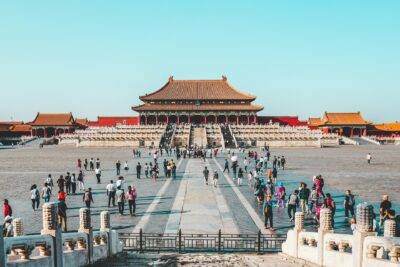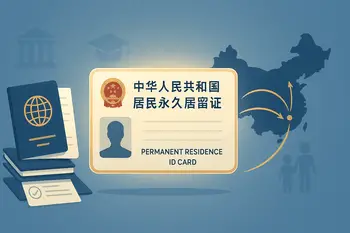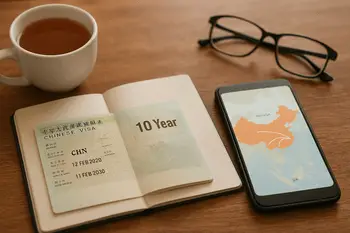
Whether you’re a new arrival or have been in China for years, this guide will provide a detailed overview of the most important Chinese public holidays and festivals, helping you navigate the unique cultural landscape of this fascinating country.
China is a country steeped in rich culture and centuries-old traditions. For expats living in China, understanding these customs, especially the numerous public holidays and festivals, is crucial for fully immersing oneself in Chinese society.
Introduction to Chinese Public Holidays
China’s public holidays are a mix of traditional festivals based on the lunar calendar and modern holidays established by the government. The combination of these holidays not only reflects China’s cultural heritage but also its political history. As an expat, understanding these holidays is essential not only for planning your personal and work schedule but also for engaging with Chinese colleagues, friends, and neighbors.
Chinese New Year (Spring Festival) – 春节
The Chinese New Year, also known as the Spring Festival, is the most important holiday in China. This festival marks the beginning of the lunar new year and is a time for family reunions, feasts, and various cultural activities. The celebrations last for 15 days, starting on the eve of the lunar new year and ending with the Lantern Festival.

During this period, you will notice vibrant decorations, red lanterns, and an abundance of fireworks. Many businesses close for the duration of the holiday, and millions of people travel across the country to reunite with their families. It’s important to plan your travel and business activities around this holiday, as it significantly impacts daily life in China.
Qingming Festival (Tomb-Sweeping Day) – 清明节
The Qingming Festival, or Tomb-Sweeping Day, is held on April 4th or 5th each year. It is a day of mourning and remembrance, where Chinese families visit the graves of their ancestors to clean the tombstones, make offerings, and pay their respects. The festival is also associated with the arrival of spring, and it’s common for people to enjoy outdoor activities like picnics and kite flying during this time.
As an expat, you may not have ancestral ties in China, but understanding the significance of Qingming is important. It is a solemn holiday, and you might notice quieter streets and a more reflective atmosphere as people honor their loved ones.
Dragon Boat Festival – 端午节
The Dragon Boat Festival occurs on the 5th day of the 5th lunar month and commemorates the death of Qu Yuan, a patriotic poet from the Warring States period. The most iconic feature of this festival is the dragon boat races, where teams row in sync to the beat of drums, competing in colorful, elaborately decorated boats.

Another key aspect of the festival is the consumption of zongzi, a traditional sticky rice dumpling wrapped in bamboo leaves. These are often shared among friends and family, and you’ll see them for sale in markets and restaurants throughout the country. As an expat, joining in the festivities and tasting zongzi is a great way to experience Chinese culture firsthand.
Mid-Autumn Festival – 中秋节
The Mid-Autumn Festival is celebrated on the 15th day of the 8th lunar month. It is a time to give thanks for the harvest and to reunite with family. The festival is also known as the Moon Festival because it coincides with the full moon, which is believed to be at its brightest and most beautiful on this night.

The highlight of the Mid-Autumn Festival is the sharing of mooncakes, a dense, sweet pastry filled with various ingredients like lotus seed paste, red bean paste, or salted egg yolk. Families gather to admire the moon and enjoy these treats together. As an expat, participating in a Mid-Autumn Festival gathering can give you deeper insights into Chinese values of family and togetherness.
National Day – 国庆节
National Day on October 1st marks the founding of the People’s Republic of China in 1949. It is one of the few modern holidays in China and is celebrated with great enthusiasm across the country. The holiday typically lasts for a week, known as the Golden Week, and is a time for travel, shopping, and festivities.

During Golden Week, major tourist attractions can be extremely crowded, and transportation networks are often overwhelmed with people traveling both domestically and internationally. As an expat, it’s wise to plan ahead if you intend to travel during this period or to avoid popular tourist destinations to steer clear of the crowds.
Labor Day – 劳动节
Labor Day on May 1st is a global holiday celebrated in many countries, including China. It honors the contributions of workers and is a time for rest and relaxation. In recent years, the Chinese government has extended the holiday to allow for a longer break, leading to increased travel and consumer spending.
Many locals take advantage of this time to go on short vacations, and as an expat, you might find it a good opportunity to explore different parts of China. However, like National Day, popular destinations can be very crowded, so plan accordingly.
Other Notable Holidays
In addition to the major holidays mentioned above, there are several other holidays and observances in China that are important to note:
- Lantern Festival (元宵节): Marks the end of the Chinese New Year celebrations with lantern displays and lion dances.
- Double Seventh Festival (七夕节): Known as Chinese Valentine’s Day, it celebrates the love story of the Cowherd and Weaver Girl.
- Winter Solstice (冬至): The shortest day of the year, traditionally observed with family gatherings and the consumption of dumplings.
Tips for Expats during Chinese Holidays
Plan Ahead
During major holidays like Chinese New Year and National Day, travel and business operations are heavily impacted. It’s essential to plan your activities well in advance to avoid disruptions. If you plan to travel during these periods, book your transportation and accommodation early, and be prepared for delays and crowds.
Engage with Local Customs
Participating in local customs and traditions is a great way to build relationships with Chinese colleagues, neighbors, and friends. Whether it’s giving red envelopes (hongbao) during Chinese New Year or sharing mooncakes during the Mid-Autumn Festival, these gestures are appreciated and can help you integrate more fully into the community.
Respect Cultural Sensitivities
Understanding the cultural significance of these holidays is crucial for avoiding misunderstandings. For example, Qingming Festival is a time of mourning, so it’s important to be respectful and considerate during this period. Similarly, during the Dragon Boat Festival, showing interest in the history and traditions behind the celebrations can go a long way in building rapport with locals.
Conclusion
Understanding Chinese public holidays and festivals is an essential part of adapting to life in China as an expat. These holidays offer a unique window into the country’s rich cultural heritage and provide opportunities for you to deepen your connection with Chinese society.
By planning ahead, engaging with local customs, and respecting cultural sensitivities, you can make the most of your time in China and fully embrace the vibrant culture that surrounds you.


